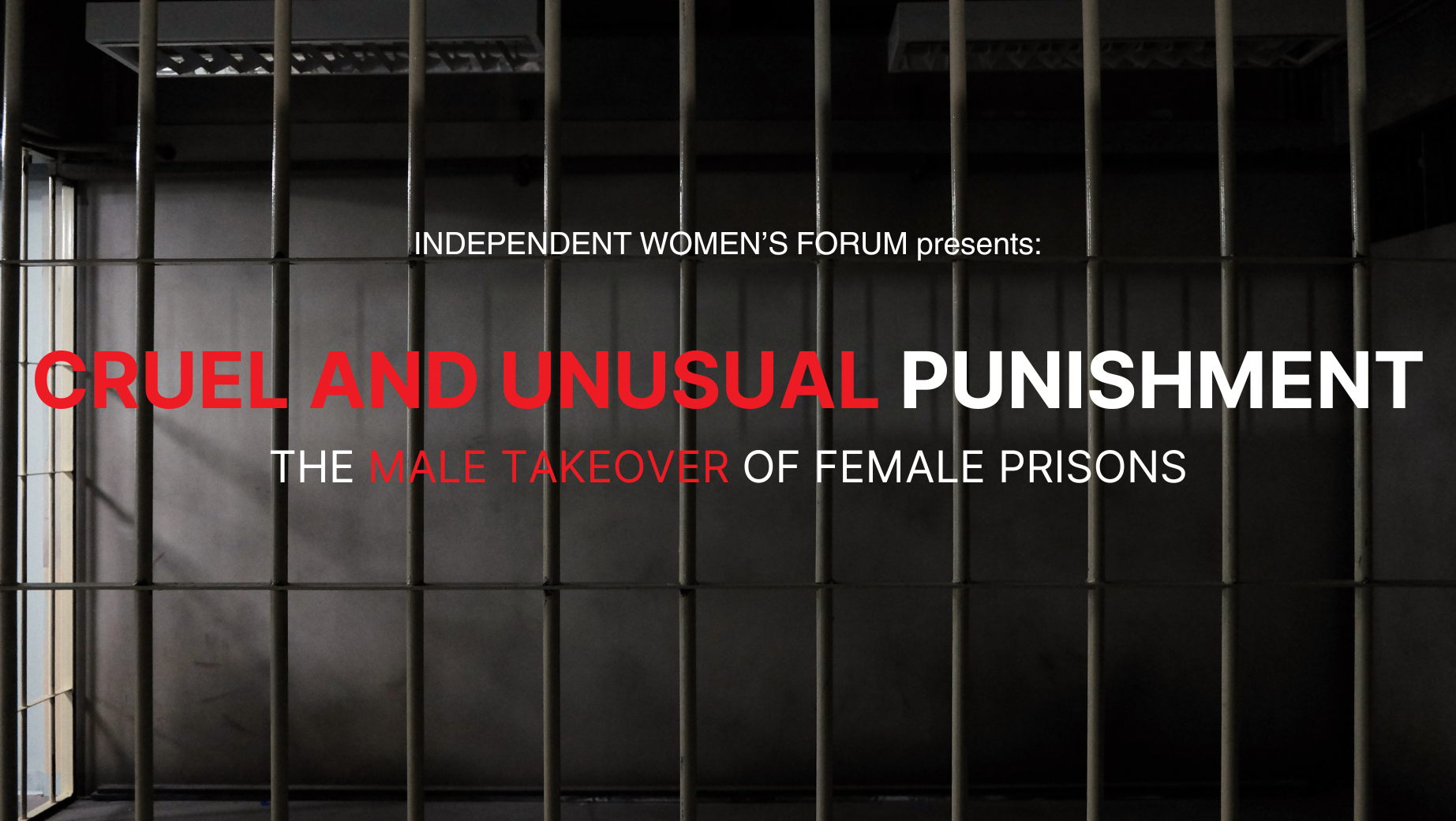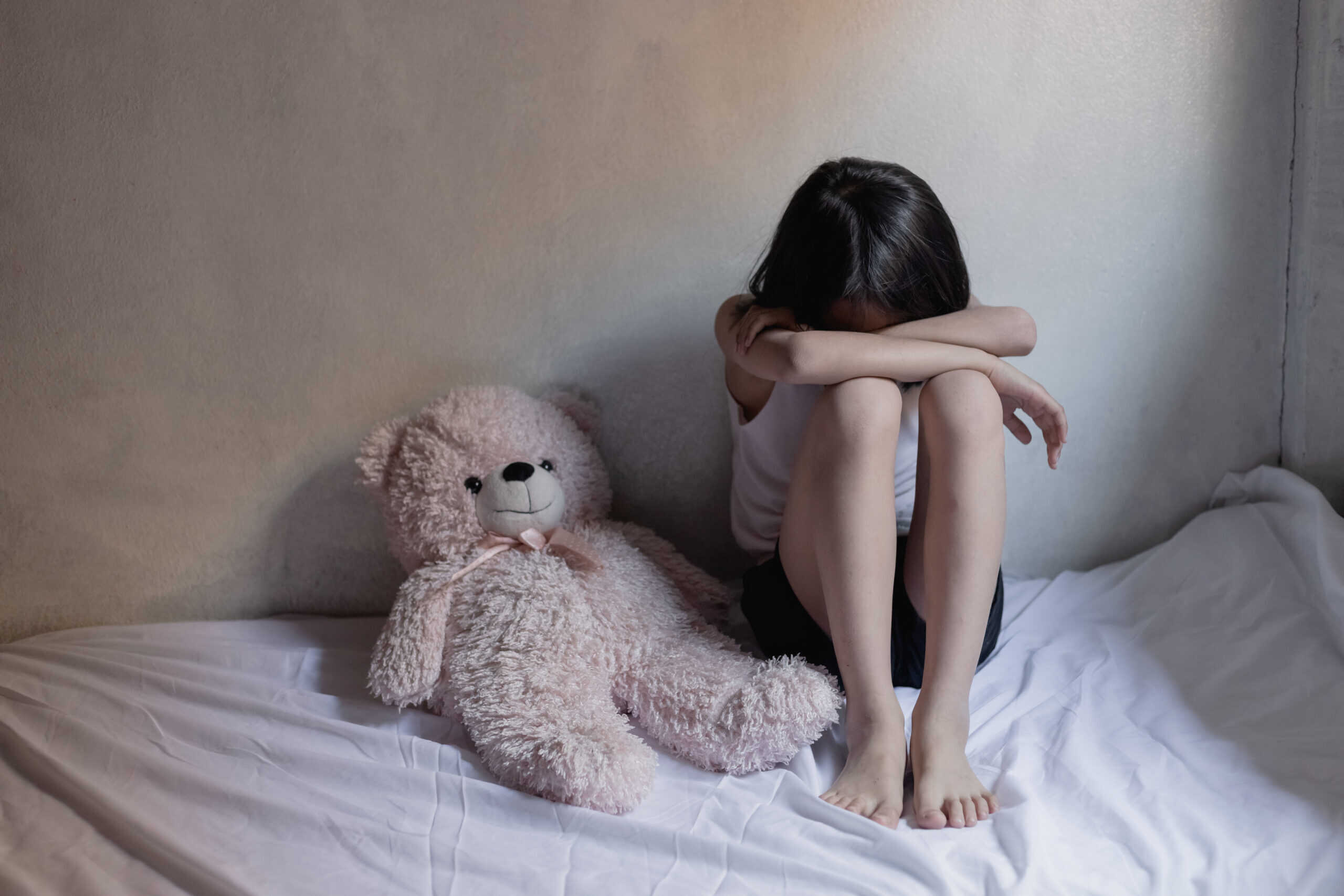New Docuseries Paints Chilling Picture of Women Forced to Live with Men in Prison

Independent Women’s Forum launched their new docuseries, Cruel & Unusual Punishment: The Male Takeover of Female Prisons, late last week. With new episodes airing weekly through March, the series promises to “share the grim, tough-to-swallow details about what happens when women’s rights no longer exist within a women’s prison.”
Cruel and Unusual Punishment’s first installment features the story of Jennifer Barela, a formerly incarcerated woman forced to share a cramped cell with a man convicted of murder.
Jennifer served fifteen years in Central California Women’s Facility (CCWF) for attempted murder, assault with a deadly weapon, and gang enhancements — an unfortunate consequence of finding solace from a traumatic childhood in drugs and gang affiliation, says Barela.
She used her incarceration to repair her life, throwing herself into a daily routine of reading her Bible, working in the prison’s dental office, and studying towards associate’s degrees in business and sociology.
Barela shared an eight-person cell in the prison’s academic-honors dorm with the same, like-minded women for at least four years. But in January 2023, Barela returned from work to discover one of her long-standing roommates had been replaced by a man — Michael Contreras — who called himself Eva Reeves.
Contreras was transferred to CCWF under SB 132, a California law that allows prisoners to choose their accommodations based on their self-identified gender identify, rather than biological sex. The law allows men who self-identify as “women” to transfer to women’s prisons regardless of:
- The crimes they’ve been convicted of.
- Their genitalia.
- Whether they’ve taken opposite-sex hormones or plan to do so in the future.
“By default, anyone who wants to transfer to a women’s prison can transfer via SB 132, because [men identifying as women] can raise concerns for their health and safety if [their transfer request is] denied, and it has to be reassessed,” IWF ambassador and prisoner advocate Amie Ichikawa explains.
Importantly, nearly 34% of men transferred to women’s prisons are convicted sex offenders — double the number of sex offenders in male prison populations.
Contreras is a gangster and alleged ‘devil worshipper’ convicted of second-degree murder, and suspected of killing many more. Fellow gang members called him “Oso” — the Spanish word for “bear” — because of his size.
Barela says she knew of Contreras before he arrived in her cell — he had been moved there after getting into “physical altercations” with women.
“Immediately, I went to our housing staff to voice my concern because [Michael Contreras] had a reputation that preceded him from a different yard,” Barela explains. “We didn’t want that type of person or activity in the room, because we were all focusing on getting home.”
Not to mention that living with Contreras required the women share a shower and toilet with him.
Prison guards offered to let Barela and her roommates move out of the room, but claimed they couldn’t move Contreras. Within a week, the tight-knit group had relinquished their cell in favor of personal security. Contreras got the unthinkable privilege of having an eight-person cell to himself.
Barela’s story seems unbelievable — a dystopian nightmare that couldn’t occur outside a work of fiction. But Ichikawa, like Barela, knows it’s all too real.
Ichikawa was serving a five-year sentence in another California prison when Richard Masbruch — a violent, convicted rapist — was transferred there.
“The depression, the feelings of worthlessness and being completely forgotten was extremely heavy in the institution at that point,” she told Megyn Kelly of Masbruch’s transfer, continuing:
Now, Ichikawa writes for IWF, telling stories of incarcerated women who fear speaking out will jeopardize their safety. She’s one of the few people willing to do so. Kelsey Bolar, IWF’s Director of Storytelling and Cruel and Unusual Punishment, tells Kelly that mainstream media have largely ignored the women’s concerns:
Meanwhile, men claiming to be women continue flowing stealthily into prisons. It’s unknown how many have been transferred, but at least 300 were waiting for their requests to be reviewed, per Women’s Liberation Front.
In CCWF, Barela claims, “the majority of the men now have girlfriends and live with them.” Indeed, within 7 months of SB 132’s implementation, the prison started distributing condoms and Plan B abortifacients, though sex is not supposed to be allowed.
Women in these situations increasingly face domestic violence, according to prisoner reports.
Allowing men to enter women’s prisons is indeed cruel and unusual punishment, inflicted against those who cannot vote by lawmakers who do not have to fear for their own safety.
The injustices exposed by IWF should inspire Christians to combat gender ideology in culture and policy. Consider contacting your state’s family policy council to find ways to get involved.
Additional articles and resources:
Lawsuit Filed Against California for Allowing Men Into Women’s Prisons
ABOUT THE AUTHOR

Emily Washburn is a staff reporter for the Daily Citizen at Focus on the Family and regularly writes stories about politics and noteworthy people. She previously served as a staff reporter for Forbes Magazine, editorial assistant, and contributor for Discourse Magazine and Editor-in-Chief of the newspaper at Westmont College, where she studied communications and political science. Emily has never visited a beach she hasn’t swam at, and is happiest reading a book somewhere tropical.
Related Posts

The Refreshing Patriotism of Olympian Jasmine Jones
February 13, 2026

Colorado Committee Kills ‘Children Are Not for Sale Bill’
February 13, 2026

Washington School District Buries Female Wrestler’s Sexual Assault Complaint Against Male Opponent
February 12, 2026

“Who Am I?”: James Van Der Beek’s Final Answer
February 12, 2026
